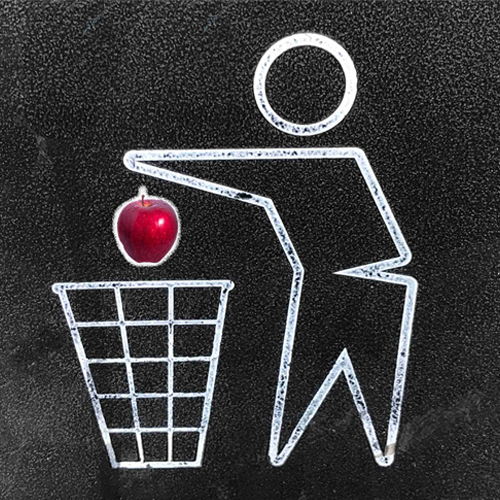
BBS Global MBA Students Fighting Food Waste with Massimo Bottura
21 March 2018There is, in a figurative sense, a food production that extends over an area slightly larger than China. This is actually the portion of global food production that is wasted every year, which amounts to 33-50% of the total, equal to 300 kilos per capita. An inefficiency of the market that does not exist in other sectors and concerns all phases of the production cycle, from harvest to distribution, up to the crucial point, our homes. Besides causing a senseless pressure on natural resources, food waste represents a significant ethical problem concerning the capacity of modern society to equally redistribute resources even among the 795 million people in the world who are still suffering from hunger. International organizations, governments, NGOs, leading names in the food sector and innovative startups are mobilizing to design and implement more effective food strategies. And technology also comes into play.
The Food Sustainability Index, the index developed by the Economist Intelligence Unit in collaboration with the Barilla Center for Food & Nutrition, assigns to Italy the seventh place among the 34 countries representing 87% of global GDP, as well as 60% of the world population. According to the index, our country excels above all in the sustainable agriculture category, one of the three pillars of the research alongside with nutrition and waste. Encouraging are also the data provided on February 5, the National Day against food waste, by the Ministry of Agriculture: a year and a half after the entry into force of the Law for the recovery of short and long-term storage food, in Italy there was a 20% increase in donations to food counters, which in turn helped over one and a half million people in need.
The fight against waste, however, begins already from education, the civic one of individuals and families and the professional one of future managers and entrepreneurs in the food sector. “Italy stands for a globally recognized very high quality standard in food production, but there are many companies that are emerging in our country to fight waste”, says Ludovica Leone, Scientific Director of the Global MBA in Food and Wine at BBS. “Here at the Bologna Business School students savor the Italian experience in the field of food & wine, confronting with numerous examples of excellence that have made the “Made in Italy” famous around the world. In addition, BBS is constantly committed to bring its students as close as possible to the issues of ethics and sustainability in the food sector to give them the skills needed to better manage the challenges posed today by the field of food and wine.”
This is also the meaning of Food for Soul, the association founded by Massimo Bottura – chef and owner of the restaurant Osteria Francescana of Modena, three Michelin stars and number two in the ranking of the 50 Best restaurants of the world – and his wife Lara Gilmore, which will see the current students of BBS’s Global MBA Food and Wine engaged in the definition of a plan for sustainable growth and territorial awareness for the ‘Social Tables Ghirlandina’ project in Modena. “Each year, during the Business Development Lab course, our students are confronted with a project proposed by a reality of the agri-food industry. The collaboration with Food for Soul will allow them to understand how to develop, through a collaboration with local partners, both public and private, sustainable initiatives to fight food waste and support social inclusion, including through sensitization to beauty,” adds Ludovica Leone. The refectories today are active in Italy in Milan, the first experiment ever created at Expo 2015, in Bologna and Modena and abroad in Rio de Janeiro, a refectory created for the 2016 London Olympics, and a few days ago The Refectory of Paris was inaugurated.
In addition to the initiatives set up to raise awareness and the strategic planning of the use of resources, there are also many new technologies deployed on the food waste front. It starts from the app that can organize our daily shopping and consumption of fresh products in the home, to get information technology in the broad sense, useful for keeping track of food during all the different stages of the supply chain. The waste, in fact, is attributable only up to 2% to large retailers, while the remaining quote is divided in half between the families and the production circuit. Food waste affects the collective imagination above all for the inequality in the distribution of resources, but the scope of its impact on the environment must also be fully understood. The generation of new pastures and cultivable fields involves deforestation, the risk of extinction of animal species and entire ecosystems, the displacement of indigenous populations and the impoverishment of the soil. The water, necessary to produce the food that will never arrive on our tables, counts for 25% of the water resources consumed in the world. Unwanted food also costs about $ 13 billion a year for the food industry for its disposal. This is why more and more industries in the food sector increasingly implement sustainable policies by paying greater attention to the production cycle and the generation of waste, to logistics and distribution to recycling practices.
Food is passion, culture, identity and sharing. To reverse the course and implement an effective strategy against waste, it is necessary to understand the causes in every single phase of the production chain and to involve the responsible actors in the correction of the existing schemes, starting from the consumers.
